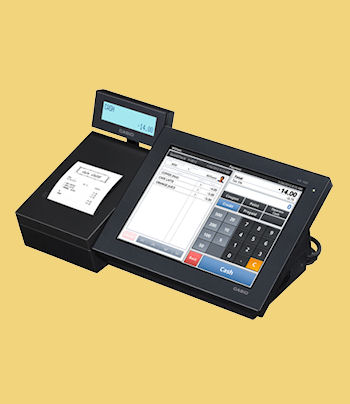Retail Business Tech: Rush To Recruit Resellers With Tablet Apps


A raft of vendors, including Casio, Star Micronics and Handpoint have launched platforms and programmes to help resellers create more inventive methods of customer service.
With high street shops falling like flies and marketing managers in the hotel, catering and hospitality businesses staring into the abyss. Companies in these vertical markets are willing to throw money at any solution that helps them engage with customers more effectively, several experts confided at The Retail Business Technology Expo.
Platform arrivals
Japanese Epos product maker Star Micronics has launched a developer platform aimed to help resellers create user engagement apps for growth markets in the hospitality and retail markets. The software development kit, initially aimed at developers on Linux and Android platforms, is designed to beckon more resellers into creating applications for retailers who need to create better ways of engaging with customers.
“People still want to go to shops but they don’t want to waste time queuing to pay, or waiting to find out if something they want is in stock, or waiting for a table,” said Star Micronics’ marketing director Annette Tarlton. “Anyone who can create systems that make going out less painful could do well. There are all kinds of opportunities to create systems for pre-ordering, bookings, table management, loyalty cards and CRM. The only limit is your imagination.”
Star Micronics was demonstrating its own interactive display systems designed to help customers check stock availability, get extra product information and summon help.
Meanwhile, as Casio launched its cloud reporting module for CBMS (Casio Business Management Solutions) marketing manager Guy Boxall said Android will be the strategic platform that the channel should concentrate on. “We chose Android because it’s open. If you can talk to Androids, you can talk to 65 per cent of the people who own smartphones.”
Casio wants the channel to invent more creative ways for shops to talk to their customers using SMS messaging, electronic receipts and personalised services.
However, one developer said Android should be choosy about the markets they enter. Mark Mason, CEO of Mubaloo said the Android’s market share doesn’t make it omnipotent as a retail platform. “Whilst Android has the largest market share, it is iOS that the enterprise market is predominantly supporting. Apple’s focus on ensuring iOS is secure for enterprise, and security concerns about Android have so far prevented Android’s full enterprise support,” said Mason.
With mobile devices now being used as payment terminals the market has changed dramatically. Many new players are entering the payment space and new solutions are emerging with great opportunities for both merchants and customers said Erla Osk Asgeirsdottir, marketing director of Handpoint, which has created an API to enable developers to add payments to their applications and use smart devices as a point of sale.
Handpoint is looking for partners that want to integrate payments to their ePOS systems. “The mobile point of sale enables small traders to accept card payments in a simple and a secure way. Big companies too. They’re adding this new payment channel to their usual offerings. We will see more tablets and smartphones used as check out systems in the near future. It’s already happening in the US,” said Asgeirsdottir.
Recent Posts
Flashpoint enters new chapter with global partner programme
Security vendor Flashpoint debuts partner programme following $28m funding
Channel partner “disconnect” hindering growth
Complex buying journeys and sprawling partner networks hampering customer experience, says Accenture
Cyxtera launches global channel partner programme
Datacentre provider Cyxtera says launch is “milestone in our go-to-market strategy”
US IT provider brings mainframe services to UK
Ensono highlights importance of mainframes still to major industries
VASCO and Nuvias expand distribution across EMEA
Security vendor VASCO looks to replicate UK and German set up across EMEA
Splunk says channel investments driving growth
Splunk details investment in Partner+ programme at .conf2017
